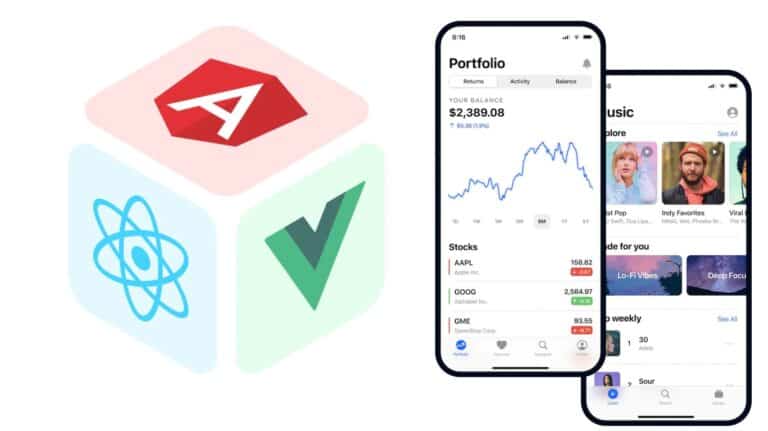Low-code is on the high. The new-age automation shortcuts, reference architectures, templates and wider tooling offerings that form the low-code universe of software application development are in high gear in terms of their current ascendancy.
Looking upwards, low-code is also now being charged with accelerators and specific platform developments designed to create not just faster applications, but faster application development itself.
Known for its low-code tools but dropping the term in its tagline to now describe itself as a more cerebrally enriched specialist in high-performance application development, OutSystems continues its mission to be the most vocal Portuguese technology company most of us might have heard of outside of international behemoths with offices in the country.
Isn’t it Ionic?
Aiming to inject some additional Intellectual Property (IP) into its current stack, the company has this month acquired Ionic, a platform for building mobile and desktop applications using web technology.
As a combined today force (with OutSystems as parent overseer), the two organisations straddle a range of development approaches – from open source to high-performance low-code – with a focus on enterprise-grade applications with built-in security and scalability.
Open source purity
Ionic and its open source products will continue to operate independently, supporting and growing its developer community as a complement component to the OutSystems platform, including the OutSystems Cloud and cloud-native development environments.
“We founded OutSystems to help customers innovate faster and fundamentally change how enterprise software is developed. Ionic is a continuation and expansion of this vision,” said Paulo Rosado, OutSystems founder and CEO.
Rosado suggests there is synergy here and the consensus of vision is aligned towards improving developer tools experiences. He wants to enable software engineers of all competencies to massively improve their performance and deliver strategic applications that were once only achievable for (as he puts it in specific terms) ‘elite development teams’ with unlimited budgets and resources.
Co-founder and CEO of Ionic Max Lynch confirms that OutSystems shares his firm’s our community-centric approach and focus on making software development easier and more accessible, whether as a solo developer or in a larger business. He suggests that acquisition by OutSystems will enable his team to provide additional value to community members and significantly increase its investments in open source product development and R&D.
Open source toolkits & projects
Ionic is the maker of several popular open source projects, including Ionic Framework, a mobile UI toolkit; Capacitor, a tool for natively deploying web applications; and Stencil, a toolchain for building web component-based design systems.
Ionic’s developer products are said to enable developers to build, secure and deliver enterprise-grade applications in less time. Its open source and commercial products are reasonably well adopted (they’re used by more than five million developers in over 200 countries) today.
Ionic was advised in the transaction by JMP Securities, a Citizens Company, which acted as the sole financial advisor, and Polsinelli PC, which served as legal advisor. Hogan Lovells LLP served as legal advisor to OutSystems in the transaction.
Are OutSystem’s moves here progressive, visionary and innovative… or is the firm playing catch-up to Appian (perhaps also Mendix) with its pre-existing Appian Mobile offering? To say that OutSystems is lagging in this market is (arguably) both unnecessary and unfair – the company is growing organically where it can and developing its stack at an impressive rate. For it to make a strategic acquisition of this kind of likely down to some fairly exhaustive research into Ionic and where its own platform strengths and capabilities lie – and anyway, what technology vendor of any size doesn’t make acquisitions?
